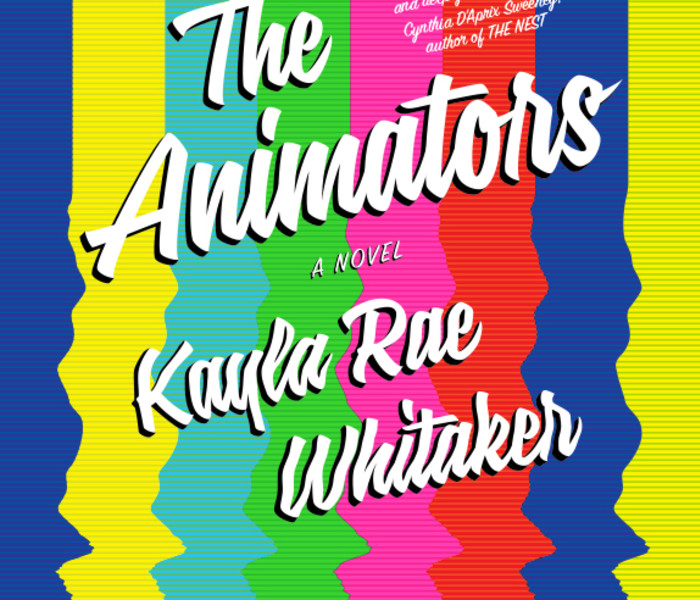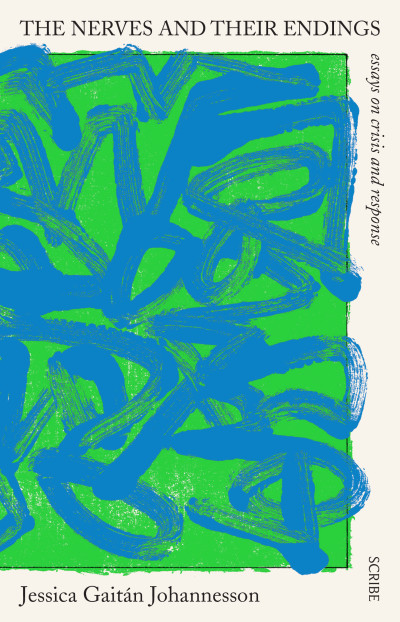‘Jessica Friedmann has left safety behind and walked into something vast — a self, a world, on the verge of unravelling yet exhilarating and full of love. This book runs deep and wide. It’s alive with arresting images, with thoughts too big, sometimes too dangerous, to pin down.’
Maria Tumarkin
‘While the occasion for this book is Friedmann’s experience of post-partum depression, Things That Helped points to the larger question of becoming a writer-mother, and the ways a traumatic splitting of the self might relate to a creative one, and how, in consciously reintegrating aspects of self, a powerful, self-aware and writerly subjectivity might emerge … There is an analogic intelligence at work, a sense of metaphor pushing behind each piece of the book, finding connections that weave each part of with others … There are skeins here, not a single narrative strand, and it is in their braiding that hopes of making and loving are recovered.’
Sydney Review of Books
‘To read these essays is to observe a keen intelligence at work both coolly analysing the social forces and gender expectations that inform our understanding of this condition, while grappling with powerful feelings that bewilder and appal her.’ PICK OF THE WEEK
Saturday Age
‘Deeply affective … The personal essay is a fertile genre and Friedmann’s use of the essay structure, over a more linear memoir style, is worth noting. In North America, especially, attention surrounds essayists such as Maggie Nelson and Eula Biss who similarly meld memoir and critical theory to explore topics that also appear in Friedmann’s book: gender, class, and motherhood.’
Emily Laidlaw, Weekend Australian
‘Reveals the strange dichotomy between absence and excess of feeling … [Friedmann] writes with brutal originality.’
TLS
‘[A]n extraordinary account of extreme postnatal depression, as seen from the eye of the storm.’
Viv Groskop, The Guardian
‘An astonishing collection of essays exploring recovery from postnatal depression.’
Huma Qureshi, The Guardian
‘[A]n impressive debut … Friedmann views the world through a lens of intersectionality, and she has a sharp eye for how gender, race, and class shapes the family unit … Her language is deeply visceral, and therefore hugely affecting, when describing the feeling of pregnancy, motherhood, and mental illness … [Things That Helped] makes readers feel and think.’
Books&Publishing
‘By carefully and deliberately describing the pain, dissociation, discomfort, alienation, and other forms of havoc she experienced after birthing her son, Friedmann legitimates and recognises the physical, psychological, and political features of postpartum depression.’
Booklist
‘[Friedmann] never succumbs to sentimentality in these pages even when it's obvious how much she loves (or has learned to love) her son and how fortunate she feels for all that she has. Well-rendered essays that make readers think and feel deeply.’
Kirkus Reviews
‘[Friedmann] effortlessly mixes the personal and the political … Critical theory is blended into the book, but remains accessible and not intrusive. The intersection between selfhood, motherhood, and womanhood are all written about with visceral candour, and she uses imagery to startling effect.’
Thuy On, The Big Issue
‘Friedmann’s deeply personal story takes the reader on captivating digressions, from the intergenerational trauma of Holocaust survivors, to the latest cross-cultural research on postnatal depression.’
Readings Monthly
‘A beautifully lyrical and intellectually complex series of essays … Jessica Friedmann is able to celebrate and interrogate the vivid, grotesque, and sublime tissues of the female body.’
Erin Bartnett, Electric Literature
‘A necessary and compelling collection of essays … In reading Friedmann, one thing is clear: she is an extraordinary thinker, a precise and complex writer, a tireless seeker of le mot juste … Watching a keen mind wrestle is one of the pleasures of reading nonfiction, and this book is a prime example … Despite the horror she narrates, her prose rarely strays from a calm, thoughtful tone. And this is the genius of Things That Helped: it’s bringing light to an aspect of women’s lives that publishing has thus far turned away from, and it’s doing so with such beauty, with such precision and skill, that these struggles can no longer be ignored.’
Katharine Coldiron, Proximity
‘Exquisitely written … breathtaking … Wise, thoughtful, and provocative, Things That Helped raises important issues and asks important questions about white privilege, unequal access to medical care, cultural memory, and how best to navigate complex relationships with peers, family, employers, and acquaintances. The things that helped Friedmann may not help everyone suffering from postpartum depression, but as a testament to recovery, the text is sure to inspire, uplift, and educate.’
Eleanor J. Bader, Rewire.News
‘While I’d recommend this book to almost anyone, I’d particularly recommend it to those who, like me, jumped on the Solnit train and are looking for some more discerning and beautifully executed feminist criticism to get excited about — not that there’s any shortage. It’s incredible to read Friedmann engaging with so many voices without having them, even for a minute, drown out her own.’
Grace McCarter, Hot Chicks with Big Brains














